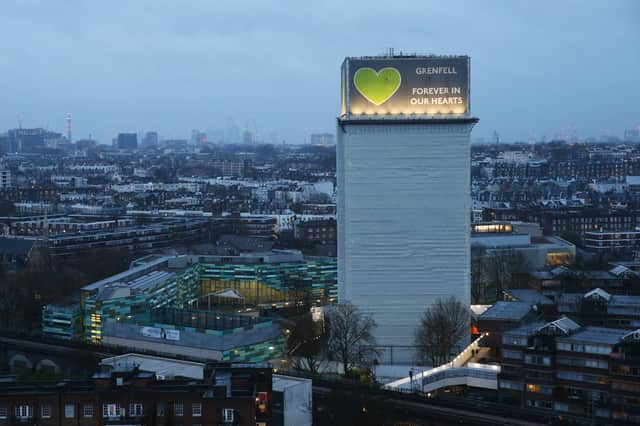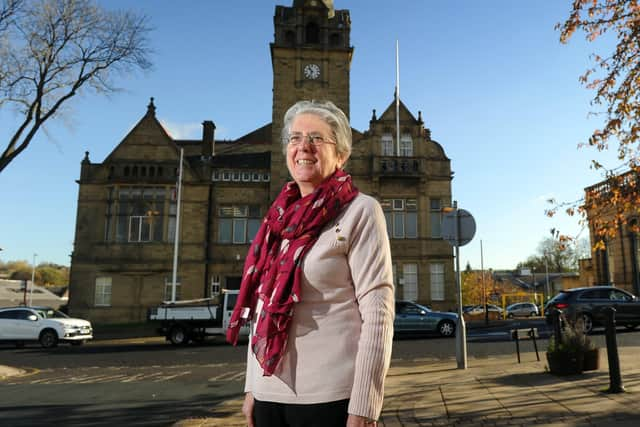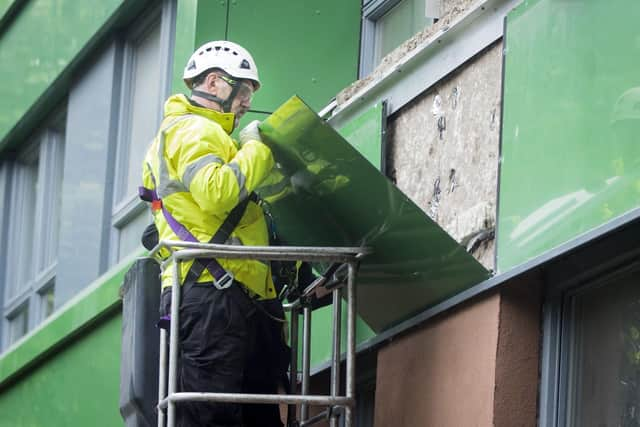Grenfell cladding scandal sees leaseholders betrayed and facing ruin – Kath Pinnock


Imagine, then, receiving a bill for £75,000 for neither a service, nor an item, that you have ordered. Imagine then knowing that your savings have dwindled due to other similarly unbudgeted bills.
Further, imagine that your only major asset, your home, has, almost overnight, lost all its value.
Advertisement
Hide AdAdvertisement
Hide AdIt is hard to truly appreciate the absolute fear of that happening. Yet, that is just the dreadful situation over one million of our fellow citizens find themselves facing now.


This situation is the consequence of the cladding scandal. Four years ago there was a very serious fire in the Grenfell Tower in London in which 72 people died. The fire spread so quickly that residents were not able to evacuate.
The public inquiry has established that the cladding on the external walls of the tower block was not fully fire resistant and actually helped the fire to spread.
There are many thousands of blocks of flats throughout the country with the same or similarly flammable cladding. All the cladding on blocks of more than four storeys has to be removed and replaced. The cost of doing so is estimated by the Government at £16bn.
Advertisement
Hide AdAdvertisement
Hide AdTwo questions then arise. How are residents to be kept safe while waiting for cladding removal and, who pays?


The answer, in both cases, is the residents. Lib Dem MP Daisy Cooper began the attempt in the Commons which was taken up by me and others in the House of Lords.
We tried five times in the Fire Safety Bill to persuade the Government to prevent any of the major costs of remediation being charged to leaseholders. Each time the Conservatives in the Commons voted in favour of leaseholders paying the exorbitant costs of making the buildings, in which they live, safe.
Where, then, does that leave leaseholders?
For leaseholders in one block in Manchester it has meant already receiving a bill for £75,000 to be paid for by the end of the year.
Advertisement
Hide AdAdvertisement
Hide AdFor many, the options are extremely limited. Many are considering bankruptcy as the only route out of this horror story that is not of their making. That option has long-term implications for future mortgages and borrowing. For some bankruptcy will also result in homelessness. Everything they have determinedly worked for – gone – and through no fault of theirs.
The removal of the dangerous cladding is only part of the scandal. When this is being removed, other building defects are being revealed. There are, for instance, fire breaks that, according to the building regulations at the time of construction, should have been included.
None of the non-cladding defects are covered by the Government’s grant funding. It is a £5bn fund which is only for blocks of more than seven storeys and in any case is not sufficient to include all buildings affected. Leaseholders in one block in London did succeed in getting the cladding removal grant, but they still received a bill for £40,000 each to put right non-cladding defects.
For some leaseholders it is the huge hikes in insurance costs which are often a fourfold rise combined with having to pay for 24/7 “waking watch” to alert for fire.
Advertisement
Hide AdAdvertisement
Hide AdOne leaseholder discovered that her service charge of £194 per month is rising to £700 per month. For many, that kind of increase is simply unaffordable and enough to push them over the financial edge.
What needs to be done is for Government to fund the major costs upfront and then to recoup that funding from those who have created the problem: the developers who are currently been asked to contribute just £200m a year from their vast profits; the contractors; and the manufacturers.
That is a fair and just way forward. It is what happens already when, for example, cars have defects. The manufacturer calls them in and they are repaired at their expense.
This scandal does not disappear because the Fire Safety Bill passed. Gradually the full awful extent of the Government’s decision to leave leaseholders to carry the bill will unfold.
Advertisement
Hide AdAdvertisement
Hide AdThe Prime Minister promised leaseholders they would not be having to pay the “unaffordable” costs of remediation. He has broken his promise.
The campaign will not end. I, and others, will do what we can to put an end to this terrible injustice. The leaseholders have done everything right and nothing wrong.
They are the innocent victims in this cladding scandal.
Comment Guidelines
National World encourages reader discussion on our stories. User feedback, insights and back-and-forth exchanges add a rich layer of context to reporting. Please review our Community Guidelines before commenting.